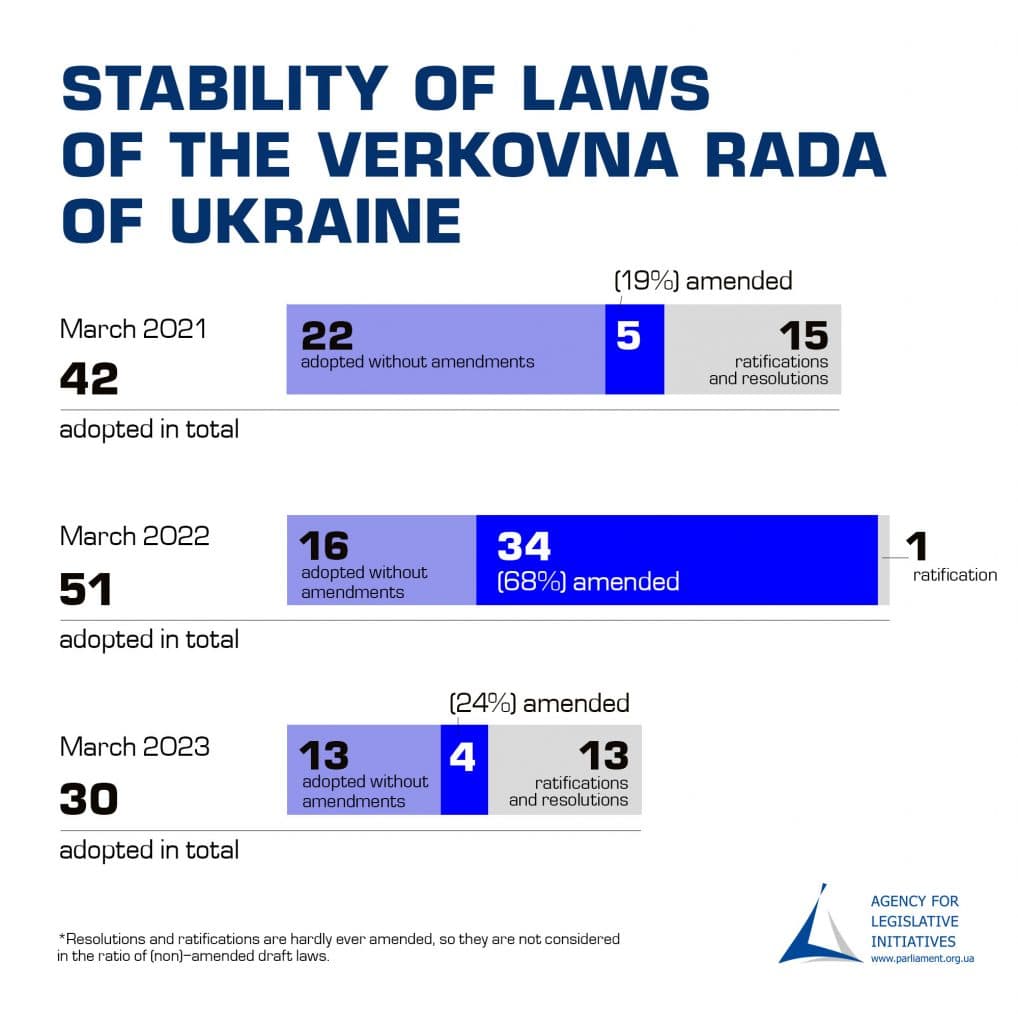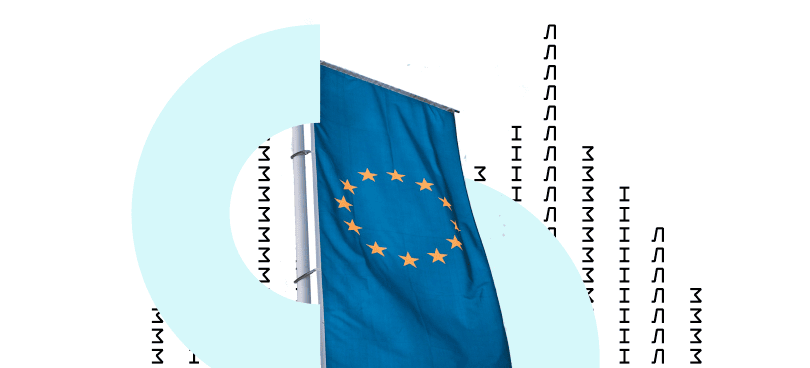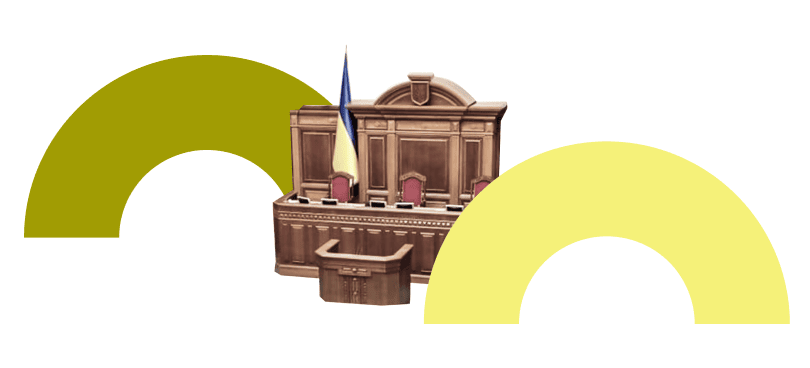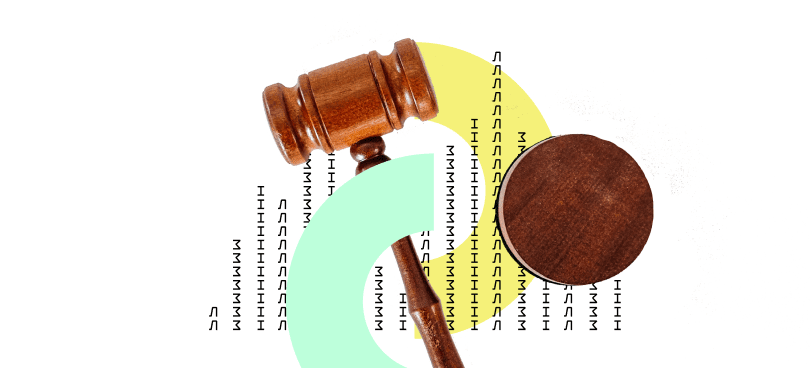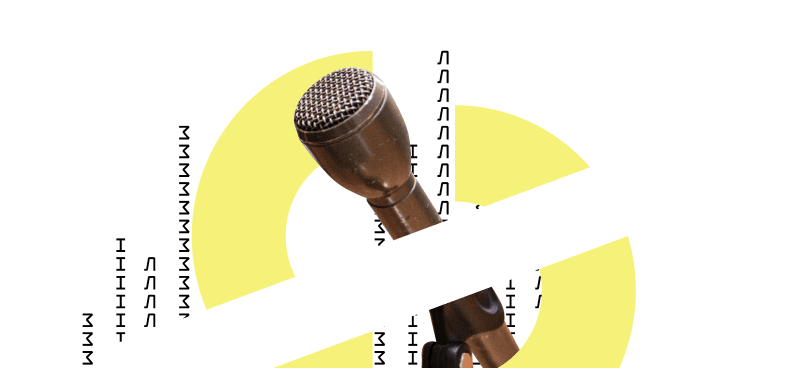ALI article for “Ukrainska Pravda”
The first month of the full-scale invasion is a unique period in the history of the Ukrainian parliamentary system. At that particular moment, representatives of the ruling elite were in immediate danger, and the Verkhovna Rada, as a place housing MPs, was one of the primary targets for destruction.
Nonetheless, the Ukrainian parliament kept working despite all odds. MPs needed to amend the legislation immediately to fit the conditions of a full-scale invasion, and they did so in a very short time and under the threat of shelling and operations of sabotage and reconnaissance groups. However, given the rapid alterations in circumstances, what was the degree of stability of laws enacted during this period?
We have analysed all laws adopted in March 2022. The absolute majority of them were amending other laws. So, we reviewed all laws and codes that had been amended.
According to our estimates, after 18 months following March 2022, most amendments were modified again. This means that MPs once again tried to re-write what had been changed just before that. Such laws can be called unstable.
Why can the laws be unstable?
One of the reasons includes continuously changing circumstances. When enemy tanks are within a few kilometres from the capital, changes are needed here and now. This is what the Rada was doing: settling the situation in a very stressful environment. Subsequent developments at the frontline and in the international arena forced parliamentarians to amend newly adopted laws again and again. The general instability also affected the instability of legislation.
In peacetime, however, a slightly different paradigm exists: constant amendments to the legislation, especially during a relatively short time since its adoption, mean that the quality of the law is not very high. Amendments to it may be compared to patching old clothing that no longer fits by any parameters.
In March 2022, laws were developed and enacted with utmost speed, and hence, errors were unavoidable. The frequency of amendments to the regulations may be related to the low quality.
It is hard to tell what was the actual reason in each specific case. Since there are sufficient resources and information available, the Cabinet of Ministers is the only body that may speak with certainty of the quality and clarity of any draft law. Although sometimes, everything is obvious.
For instance, the Main Scientific and Expert Administration saw a violation of laws in draft law No. 7118 already after its registration due to the introduced possibility of forwarding cases investigated by NABU to another pre-trial investigation body. After all, it is for a reason that NABU has a special status. But the draft law was adopted without recommendations being taken into account. Therefore, a month later they were to be introduced by means of a separate law.
And it is sometimes apparent that laws were adopted with great speed during this period. It is especially noticeable in the laws elaborated with obviously superficial mistakes. For instance, draft law No. 7185 was adopted on 24 March 2022. This law was supposed to amend the law “On Baby Food,” which had been invalid for almost six months at the time.
Draft law 7151 is similar. It was intended to change the words that do not exist in the law! It seems like this paragraph will stay in the law forever as a recollection of March 2022, when two days passed between the law’s registration and adoption.
“{Amendments to part one of Article 18 adopted by Law of Ukraine No. 2121-IX of 15 March 2022 are infeasible (the words that need replacement are missing)}”
What do data say?
Of the 51 laws that were adopted in March 2022, only 17 remained unchanged. It is noteworthy that we do not consider ratifications and resolutions, which are regarded as crucial pillars of stability in the unstable framework of Ukrainian legislation (as they are hardly ever amended). One ratification was found among March laws. Two additional laws remain unsigned and are still sitting on the shelves of the President’s Office.
The norms of 68% of the laws have undergone changes, while a third of them remain in the version of March 2022. A comparison will help us figure out whether it is many or not.
Let’s review similar periods – March 2021 and March 2023. In March 2021, 27 laws were adopted (and another 15 ratifications and resolutions). Of them, only five were subsequently amended. More than 80% of unchanged laws is a striking difference compared to the results shown by MPs a year later.
The situation in March 2023 is interesting. During this time, MPs adopted 17 laws and another 13 resolutions. Out of these 17 laws, 24% – almost a quarter – were later amended. This figure is higher than two years before. However, considering that less than six months have elapsed, the current situation is beginning to resemble the one in March 2022.
The temporary nature of the laws enacted in the initial month of the full-scale invasion is apparent. This is not surprising, as the unstable nature of the legislation is directly linked to the broader instability that engulfed the country, resulting from the full-scale invasion. During this time, laws were drafted and passed with haste, which caused problems with technical and legal aspects.
Simultaneously, the need to “keep the finger on the pulse” compelled legislators to repeatedly revisit previously enacted laws with amendments. Currently, despite the global situation appearing to be more stable compared to the disastrous March 2022, the legislative process has not fully recovered, and amendments to the adopted laws are being made more frequently than before the full-scale invasion.
The law is the foundation and framework for regulations, particularly in the context of the general uncertainty of war. Indeed, during times of war, it is imperative to swiftly respond to the circumstances, including through modifications in legislation. But if Ukrainian legislators keep changing the same lines several times within a short period, this once again indicates that the legislative structure is unstable and that Ukrainian legislators are short-sighted. The tumultuous processes of state functioning increasingly resemble a game of Jenga, where players alternate removing blocks from the base of a tower and putting them on top, resulting in a tower becoming taller and less stable.

